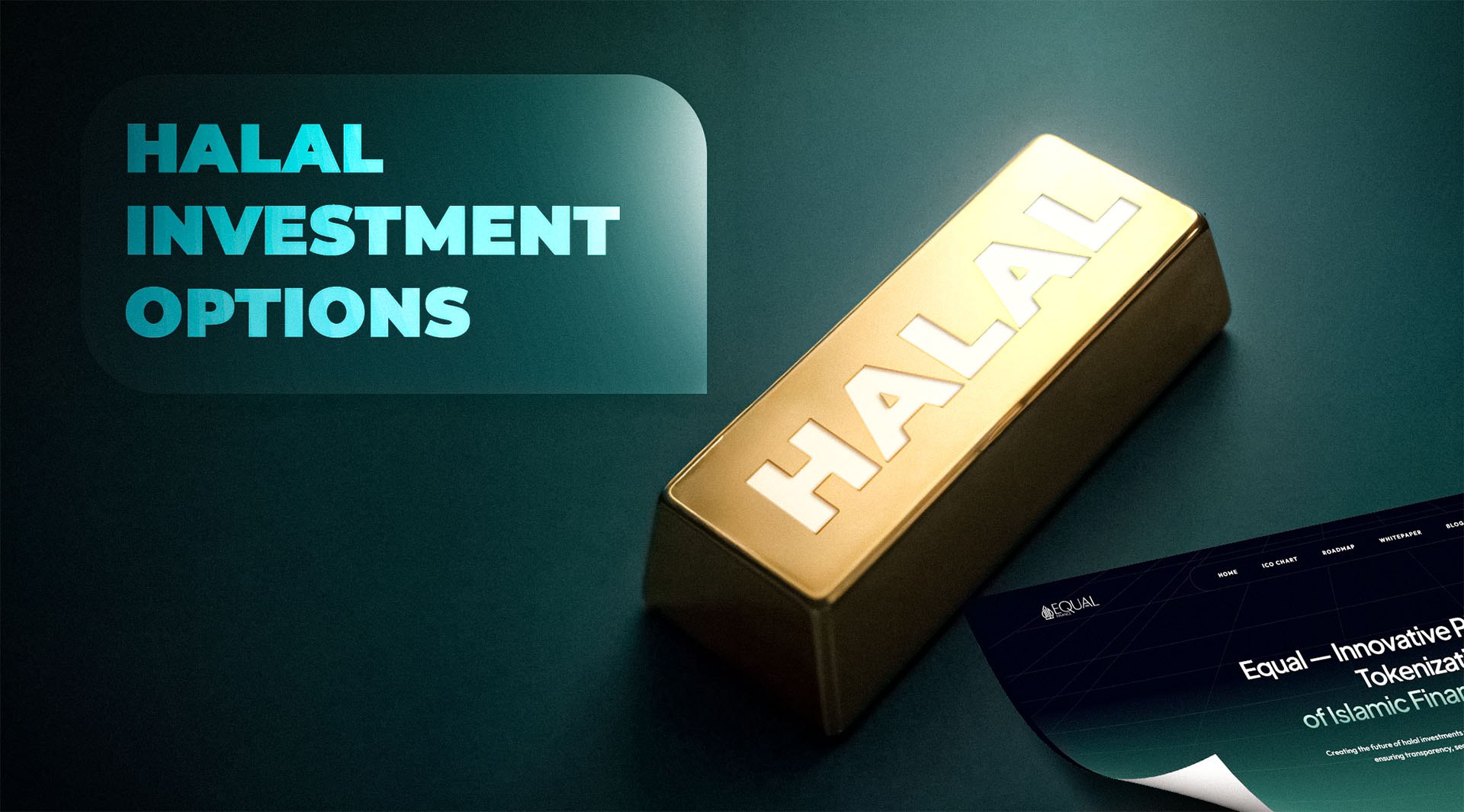In a world where financial opportunities abound, it is essential for Muslim investors to ensure that their investments align with Islamic principles. The concept of halal investments stems from the core tenets of Shariah, emphasizing fairness, ethical dealings, and a strict prohibition of haram (forbidden) activities such as riba (interest), maisir (gambling), and gharar (excessive uncertainty).
Halal investment options are not just about avoiding prohibited sectors; they are about finding opportunities that contribute to social welfare, economic justice, and ethical wealth creation. This article serves as a comprehensive guide to halal investment options, discussing the foundations of Islamic finance, exploring permissible asset classes, and offering practical advice to Muslim investors.
1. Foundations of Halal Investments
Halal investments are rooted in Islamic jurisprudence, which governs all aspects of life, including finance. Key principles include:
1.1. Prohibition of Riba (Interest)
Islam strictly forbids any form of interest-based transactions, as riba exploits those in need and disrupts the balance of economic fairness. Investments that involve fixed interest returns, such as conventional bonds or savings accounts, are not permissible.
1.2. Avoidance of Maisir (Gambling)
Speculative activities, akin to gambling, are considered haram. This includes speculative trading in derivatives, highly volatile cryptocurrencies without intrinsic value, or any form of betting.
1.3. Prohibition of Gharar (Excessive Uncertainty)
Islamic finance emphasizes transparency and certainty. Transactions with unclear terms, speculative nature, or ambiguous ownership are prohibited. Halal investments should involve clear agreements and tangible assets.
1.4. Focus on Real Economic Activity
Islam encourages investments in productive sectors that contribute to societal well-being. Investments must be tied to real assets or economic activities, such as agriculture, manufacturing, or trade.
2. Key Sectors and Asset Classes for Halal Investments
Muslim investors can explore a variety of halal investment options. These include:
2.1. Sukuk (Islamic Bonds)
Sukuk are financial instruments that provide investors with ownership in a tangible asset or a share in a business venture. Unlike conventional bonds, sukuk do not involve interest payments. Instead, returns are generated from profits tied to the asset.
2.2. Real Estate
Investing in real estate is considered halal as long as the property is not used for haram activities. For example, owning residential, commercial, or industrial properties is permissible, but leasing property to businesses involved in alcohol, gambling, or other prohibited sectors is not.
2.3. Halal Stocks
Muslims can invest in stocks of companies that adhere to Shariah principles. This includes avoiding companies involved in alcohol, pork, gambling, conventional banking, or other haram activities. Companies should also have limited debt and generate income from halal activities.
2.4. Mutual Funds and ETFs
Some mutual funds and exchange-traded funds (ETFs) are designed to comply with Shariah principles. These funds screen companies for compliance with Islamic laws and provide a diversified portfolio of halal investments.
2.5. Precious Metals (e.g., Gold and Silver)
Gold and silver have historically been considered halal investment options, provided they are traded without speculation or leverage. Physical ownership or investment in funds backed by actual metals is permissible.
2.6. Agriculture and Livestock
Investments in agriculture, farming, or livestock align with the Islamic focus on tangible assets and productive economic activities. For example, owning shares in a farm or funding agricultural projects is considered halal.
2.7. Halal Cryptocurrencies
Some cryptocurrencies meet Shariah standards, provided they are tied to real utility and do not involve speculative trading. Projects like tokenized real estate or halal DeFi platforms can be explored.
3. Practical Tips for Muslim Investors
3.1. Conduct Due Diligence
Before investing, ensure the asset aligns with Islamic principles. This involves reviewing the company’s business activities, debt levels, and sources of income.
3.2. Seek Guidance from Shariah Advisors
If unsure about the permissibility of an investment, consult with scholars or Islamic finance experts. Many halal financial platforms provide access to Shariah boards for guidance.
3.3. Diversify Your Portfolio
Diversification is key to reducing risk. A balanced portfolio may include halal stocks, sukuk, real estate, and precious metals.
3.4. Focus on Long-Term Growth
Islam encourages wealth creation through productive and ethical means. Avoid speculative, short-term investments that may lead to financial and spiritual harm.
3.5. Use Halal Financial Platforms
Leverage tools like halal screening apps or investment platforms specializing in Shariah-compliant opportunities. These platforms simplify the process of identifying and managing halal investments.
4. Frequently Asked Questions
Question: Can I invest in companies with some non-halal income?
Answer: According to Shariah, companies with minimal haram income (usually less than 5%) may be permissible if the investor donates the haram portion of their earnings to charity.
Question: Are conventional savings accounts halal?
Answer: No, conventional savings accounts accrue interest, which is riba and prohibited in Islam. Instead, look for Islamic savings accounts or halal investment funds.
Question: What’s the difference between sukuk and conventional bonds?
Answer: Sukuk represents ownership in an asset or venture, while conventional bonds are debt instruments that involve interest payments.
5. The Role of Halal Investments in Financial Growth
Halal investments not only provide ethical financial opportunities but also contribute to societal well-being. By adhering to Islamic principles, investors ensure their wealth grows in a manner that benefits both the individual and the community. Additionally, the growing demand for halal financial products is driving innovation, making it easier for Muslims to align their financial goals with their faith.
Conclusion
Halal investment options are diverse and accessible, allowing Muslims to grow their wealth while adhering to Islamic principles. Whether it’s through sukuk, halal stocks, real estate, or ethical cryptocurrencies, the possibilities are vast. By conducting thorough research, seeking expert advice, and using halal financial platforms, Muslim investors can confidently navigate the world of finance and build a secure, ethical, and prosperous future.


